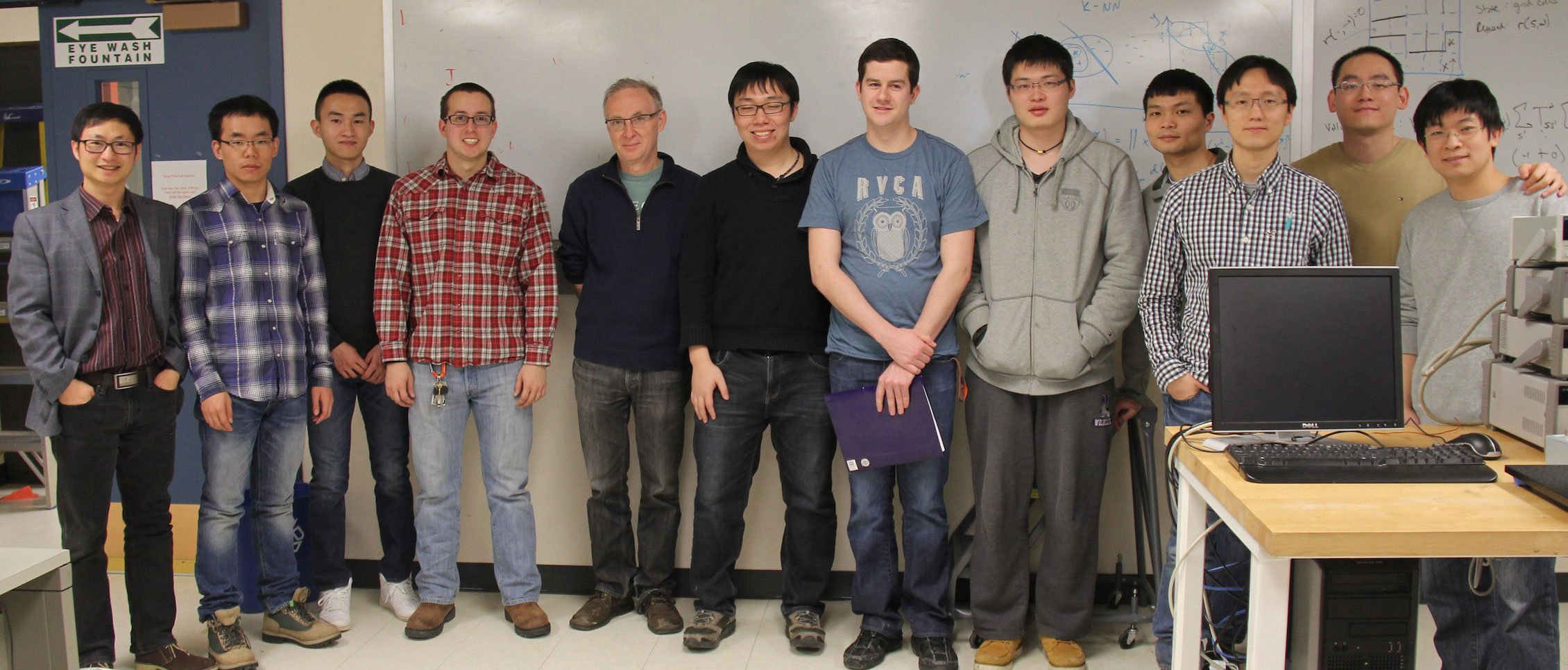NU Wildcats Led by Prof. Guo Reach Finals at 2014 DARPA Spectrum Challenge
The Wildcats were lead by Dongning Guo, Associate Professor and included EECS students.

The Wildcats were lead by Dongning Guo, Associate Professor and included EECS students, which included 395/495 A Hands-on Course in Communication Systems students Xu Chen, Binnan Zhuang, Fei Teng, Ryan Keating, Zhiyi Zhou, Brock Burdyl, Cheng Chen, Mingjun Li, Motoki Mizoguchi and others who are also passionate about digital communications (Tsung-Yi Chen, Xu Li, John Grosspietsch, Ben Honig).
The competitors at the final event represented the 15 finalists out of the 90 teams that initially registered for the qualifying tournament more than a year ago. Academic institutions from around the country comprised 12 of the 15 teams, while the remaining three teams were individual radio hobbyists and practitioners working on their own time. The final event took place at DARPA's offices in Arlington, VA. See full results.
"The Spectrum Challenge exceeded expectations for stimulating new technologies and attracting new talent," said Dan Kaufman, director of DARPA's Information Innovation Office, which oversaw the Spectrum Challenge.
Although Team Wildcats did not advance to the championship round to claim any of the $200,000 prize, qualifying as a finalist and participating in the final event was quite an achievement and learning experience for the team. The competition has been the first opportunity for EECS students to apply knowledge gained from their many different courses and apply what they have learned into building a reliable broadband digital communication system from end to end.
"The sophistication of the solutions that the teams developed really impressed us," said Yiftach Eisenberg, DARPA program manager. "We want to continue to work with industry and academia to build upon the achievements we have seen so far." It turned out that Wildcats not only participated, but also organized the event, as Dr. Eisenberg himself received his Ph.D. degree from Northwestern.
The DARPA Spectrum Challenge is a competition to demonstrate a radio protocol that can best use a given communication channel in the presence of other dynamic users and interfering signals. The Challenge is not focused on developing new radio hardware, but instead was targeted at finding strategies for guaranteeing successful communication in the presence of other radios that may have conflicting co-existence objectives. The Spectrum Challenge entails head-to-head competitions between each team’s radio protocol and an opponent’s in a structured testbed environment. The Challenge awards first place teams in the preliminary event, and first and second place teams in the final event with cash prizes totaling $200,000.

